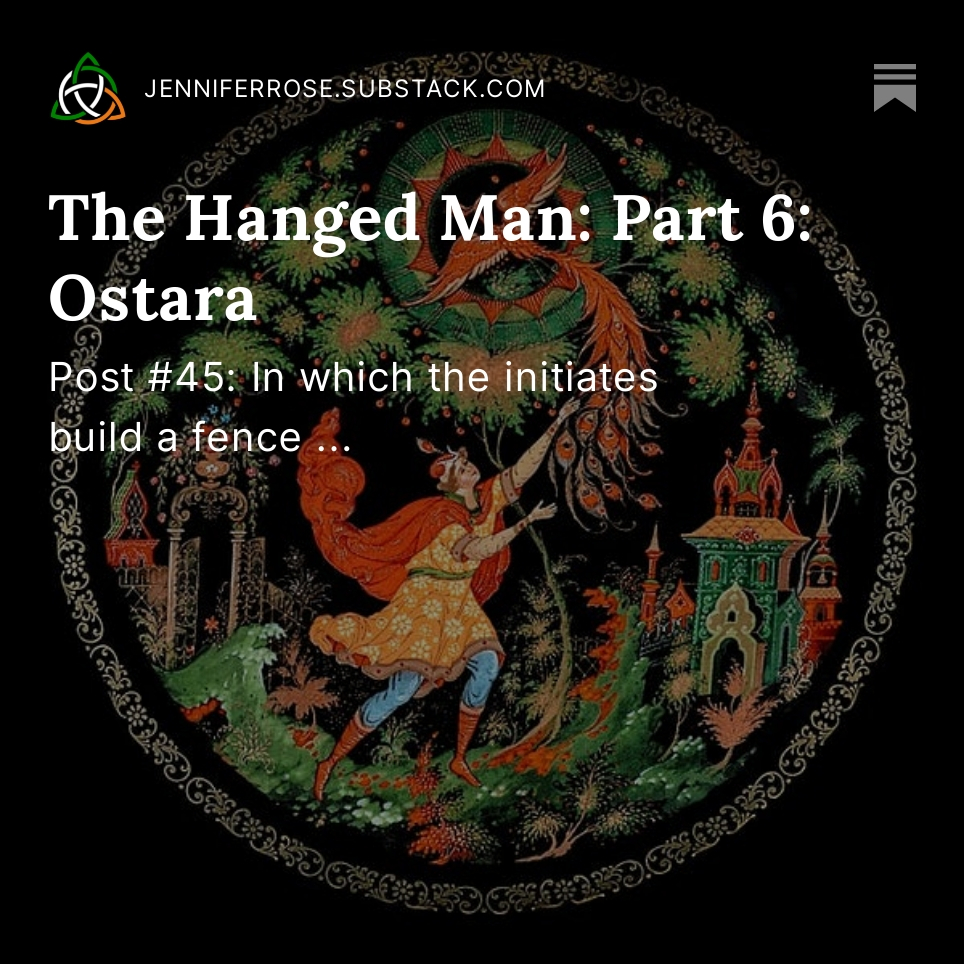by Jenny Rose | Jan 25, 2018 | Power
Arguing with what is.
Possibly the most fruitless endeavor in the world.
Yet many of us consistently argue with how we are, how others are, and how the world is.
Arguing with what is is like living in an unending war. Clinging to a story inconsistent with what is requires constant vigilance. Our lives begin to revolve around the fear that the truth we refuse to acknowledge will escape or be exposed.

Photo by Ian Espinosa on Unsplash
We cannot allow that to happen, so we put all our energy into convincing ourselves that what is isn’t. Then we start trying to persuade others to validate our particular reality because God speaks to us, or we’re especially victimized, marginalized, enlightened, rich or powerful. If we can’t persuade others, we try to create and enforce rules requiring them to fall into line, to agree, at least tacitly, with our point of view and belief system. We scorn critical thinking, science and evidence-based data. We discourage questioning, careful definitions and nuances. We create jargon, acronyms, blacklists and smear campaigns. We enlist the sympathy, empathy, kindness and compassion of well-meaning but naïve people. We set up zero sum games, use gaslighting, violence, abuse, projection, deflection, sweeping and inaccurate generalizations and distortions. We hurt ourselves, and we hurt others.
Arguing with what is is a full-time job.
My particular version of arguing with what is takes place mostly in my head. For example:
I don’t feel loved.
What? How can you say that? Remember that one kiss at the beginning, the most passionate kiss of your life? You know you want that again! Think of how funny he can be, how charming, how much fun! If you don’t feel loved it’s because you’re not trying hard enough. You’re ungrateful. You’re disloyal. You’re a bad partner. You don’t deserve him. You want too much. You’re needy and demanding. Of course he loves you, he’s just not comfortable saying it! You are happy and loved. Get a grip!
I don’t feel happy or loved.
I had this ding-dong conversation with myself for years. I desperately and repeatedly tried to convince myself I was both happy and loved, but I could never quite silence that deep internal voice that went right on saying, “I don’t feel loved.” It wouldn’t shut up. After years of this nonsense, I finally got so exhausted I stopped arguing with my true feelings and ended the relationship. Then, one day I came across narcsite dot com and immediately recognized the narcissist-empath dynamic.
You know what? I was right. I didn’t feel loved because I wasn’t, in fact, loved.

Photo by Travis Bozeman on Unsplash
Arguing with what is means fear and self-doubt are my constant companions.
So what’s the other side of the coin? What’s the fix for arguing with what is?
This magical phrase: However this needs to be, it’s okay with me.
Say it aloud: However this needs to be, it’s okay with me. Is it a lie? It usually is a lie for me when I first apply it to any given situation. I want things to be predictable, controlled and adhere to my expectations and standards. I expect that of myself, of others and of the world.
I haven’t had great luck with that expectation. The rebellious world is chaotic, unpredictable and unexpected. I’m not in charge of anyone but myself, and my feelings (along with the rest of me) are disobedient and refuse to be controlled.
My need for control and predictability are rooted in fear and lack of trust in myself. If, at any moment in any day, however things need to be is not okay with me, I know I’m dealing with fear or lack of self-trust, and those are both places where I have all the power. That instant refocus from avoiding, denying or refusing an inconvenient or unexpected truth or reality over which I have no power to the very center of my power clears away anxiety, confusion and fear. What happens in me, in a day, or in the world is not really the problem. The problem is in the way I manage my power and my choices. Addressing my own power and choices allows me to say, with perfect truth, that however this needs to be, it’s okay with me.
Being okay with the ways things are doesn’t mean endless love, light and turning the other cheek. It doesn’t mean I accept boundary violations, bullying, coercion, violence or any other kind of power-over games. It doesn’t mean I tip-toe through life pleasing others, following rules and keeping silent. It doesn’t mean toadying to the political correctness police. It doesn’t mean I feel no frustration or disappointment, or that the status quo should remain unchallenged and unchanged. It means clarity about where my power is.
Nobody wants a flat tire, herpes, an unwanted pregnancy, a cancer diagnosis, mental illness, the flu or to lose a loved one. We don’t want superstorms that wipe out our homes, the uncertainties and anxiety of climate change or food and water shortages. Nobody voted for lead in their drinking water, or to experience genocide. Nobody wants to be silenced, attacked, abused, marginalized, shot or scapegoated.
Yet all these things are. They’re real, along with many magical, wonderful things, and I can’t change the way things are.

Photo by Ludde Lorentz on Unsplash
I can only change the way I am. I can decide when and how to speak. I can decide how I interact with others. I can listen, learn, research, ask questions, think critically and decide where I stand on important issues. I can speak up for those without voices. I can pay attention to my own integrity and operate within it. I can disengage, refuse to pick up poisoned bait, move away from where the blow is going to land (sometimes) and learn self-defense.
I can say no.
I can learn to trust my own courage, willingness to love, intelligence, feelings and ability to adjust and adapt to whatever happens. I can choose confidence and curiosity as companions.
I can make sure that however I need to be, it’s okay with me.
I can surrender to others in all their strengths and imperfections. Each one of us is however we need to be, sick or well, destroyer or hero, weak or strong, power-over or power-with. People in the world are okay with me, and I choose who I engage and connect with, who I support or hinder, who I share power with, who I collaborate and cooperate with and who I allow in my life.
However this minute, this hour, this day needs to be, it’s okay with me. If I catch the flu, it’s okay with me (Ugh). If I can’t get out of the icy driveway to go swimming, it’s okay with me (Rats!). If I reread the rough draft of this post and decide it needs to be rewritten before tomorrow when I post, it’s okay with me (what a pain in the neck!)
I can accept what is, deal with it, and go on.
Or I can argue with what is.
It’s a chocolate-or-vanilla choice, and we make it a hundred times a day.
Whatever you choose, it’s okay with me.
And So

Photo by freestocks.org on Unsplash
And so, after all, it was no use,
That desperate determination to please.
In the end a hidden, untamed thing
Always looked out of my eyes,
Beseeching for freedom,
And none of us could beat it down.
Now all the rigid outlines of my life
Have fallen around my feet in graceful folds.
I’ve counted silver threads and lines
And granted freedom.
If there’s no lover for what I am
I can kiss my own shoulders.
All content on this site ©2018
Jennifer Rose
except where otherwise noted
by Jenny Rose | Nov 12, 2022 | Choice, Power
I’ve dedicated the last decade of my life to reclaiming my personal power, each step on the path made visible on this blog in the hopes that others might also find their way into a healthier, happier, more effective life.

Photo by Jon Flobrant on Unsplash
It’s been an extraordinary journey, one I hope will never end as long as I’m breathing.
At the heart of personal power is our ability to choose.
I’ve always been aware of how uncomfortable I am choosing for anyone other than myself. For years I wasn’t able to choose effectively for myself; nothing in me wanted the power to choose for others. Hand-in-hand with this part of my experience is an automatic, knee-jerk stubbornness and opposition to those who try to choose for me or anyone else. It’s been a longstanding family joke: Don’t tell me what to do!
I’ve never been friendly toward this kind of authority.
As a parent I was unwilling to take on the role of a policewoman. I wanted my sons, as teenagers, to use their excellent brains and make their own choices, then deal with their own consequences. As I raised them, it slowly dawned on me the choices I made as a mom, though I always believed they were in the best interests of my sons, might have been wrong for them. I began to realize how much time we all spend in frustration over what those around us should and shouldn’t do, including our kids. I decided to stop discussing what others should choose. I still noticed the commentary in my head, but I got better at not letting it out of my mouth.
One day, I looked at my eldest son, who was going through a bad patch, and heard myself say, “I want the best for you, but I don’t know what that is.” I recognized that was the truth, and felt humbled. It broke my heart to see him struggling and unhappy. I would have done anything to have “helped.” But I didn’t trust my motives. Of course I knew what I thought he should do, but was I looking for him to feel better or for him to make me feel better? I couldn’t be sure. I just wanted things to be better. Wanted it desperately, but I also wanted him to figure out how to help himself.

Photo by juan pablo rodriguez on Unsplash
I’m very aware of the word ‘should.’ I cut it out of my writing. I cut it out of my thoughts and speech. I’d even go so far as to say it’s a toxic word. I don’t apply it to myself and I don’t apply it to others. It never fails to appear when I’m arguing with what is or have otherwise stepped out of my own rightful power and am trying to control a situation that’s not mine to manage. It also shows up when I’m being mean to myself.
Now, suddenly, I find myself in a position of needing to make choices for a loved one who at this moment is not able to choose for themselves.
This is not like choice-making for my children. Kids are pretty resilient. I knew I would made mistakes as a parent, and I did. But I could always choose again. With small children, there’s a long future in which to reconsider, make new rules, learn in real time. I wasn’t uncomfortable with it. As they grew up, I gave them more and more power to choose for themselves and stepped back while they experienced the consequences of their choices.
Now they’re adults, and it’s harder. Now I really have nothing to say about their choices as men in the world. It’s not my business. Some of their choices are, to my mind, tragic and self-destructive, and I’m afraid for possible consequences. I’m afraid for my own pain and grief if some of those consequences occur. But I accept the only power I have is to love them and make sure they know it.
And making choices for an aging loved one is different again. The fear I’ll do it wrong is terrible. I’m working in a lifetime context where I never did do anything right, so I’m fighting that old dynamic every minute while I calmly go about gathering tools, resources and information. I know I’ll do my best and I’m confident in my own abilities and the strength of my love and intention, but choice is dynamic. It takes time to choose, observe outcomes, consider what could be better, and choose again.
I don’t know how much time I have. I don’t know how much time I want.
Working with a frail, injured, confused senior feels brittle. I may not have time to manage choice and outcome. Not only that, but when I choose for myself if I’m unhappy with the consequences I only have myself to blame; I bear all the outcomes, which is as it should be. But if we must choose for someone else, they must experience the consequences of our choice. And that’s a heavy burden for me. I feel enormous pressure to choose well, to not make anything worse, while at the same time I can’t see choices that will make anything much better.

Photo by roya ann miller on Unsplash
As I struggle with all this, mid-term elections have occurred and the final votes are being counted. The news is full of debate, discussion, and violence revolving around limiting choice and forcing “choice.” As always, I cannot get my head around people who think it’s okay to impose their ideology on others. I support freedom of personal choice (as long as it doesn’t harm others) in most circumstances. I wouldn’t impose my beliefs or choices on others. The idea is appalling. But I also don’t accept anyone has the right to restrict my access to vote or what I do with my reproductive ability. I refuse to comply with such imposition, even if it becomes law. You might as well arrest me right now.
A conversation recently took place at the pool facility where I work between a woman of child-bearing age and a male senior. She asked him why he thought it was okay for him to decide she couldn’t get an abortion when the choice was personal and had absolutely nothing to do with him. He said such a choice would hurt his feelings.
This drops my jaw. I don’t know whether to let rage catch my hair on fire or laugh. It hurts his feelings when people make choices incongruent with his belief system and ideology? Or it hurts his feelings when women are empowered? Or it hurts his feelings when he can’t control what others choose? Or he feels entitled to never have his feelings hurt?
Wow. Just wow.
Choice. It’s so easy to say to others, or to think, they should do this, or this, or the other. So easy. But I never wanted to run the world. I only wanted to be in charge of myself. Now a loved one needs me to be there for them, and I will be there every step of the way, giving it my best, just as I always have. But it’s not fun. I don’t want the power. I accept I’m the right one to have the power, but I never wanted it. How can I possibly know what’s best for another human being? How can any of us have the arrogance to think we know what’s best for everyone in every circumstance, let alone anyone in any circumstance? At times I can barely choose wisely for myself, let alone anyone else.
To read my fiction, serially published free every week, go here:
by Jenny Rose | Oct 29, 2022 | Emotional Intelligence, Feelings, Love
Except I’m not. Balancing, I mean.
A few weeks ago I came across a quote: “Grief is just love with nowhere to go.” Backtracking through multiple sources, I ran it down to a woman named Jamie Anderson who wrote it in her blog, which is now gone. The quote went viral.

Photo by Joshua Earle on Unsplash
It hit me right in the heart.
I’ve written previously about my struggle with intense love that is not received. I don’t mean unrequited romantic love. I mean flesh-and-bone love, blood love, the helpless love and connection we feel for family.
My strategy all my life has been to divert the love I feel but can’t give to the intended recipient (at least not in a way I feel they receive and believe in it or even want it) to others who do need and want it. This practice relieves some of the pressure in my heart, but there are several ways it can go badly wrong. Plenty of people in the world will suck up all the love, attention, and support we give them, but have no thought, or perhaps no ability, of returning it. In this case, my painful, overfull heart becomes withered and empty and I have to detach the vampire I’ve attracted.
I’m not looking for a place to dispose of my love like it’s a worn-out sock. I’m looking for a place where it does some good. Because that’s at the heart of feeling love one can’t give – the futility of it. What’s the point of love if we have no place to give it, if love has nowhere to go?
There are places where I feel my love has been useful. Animals. Children. Hospice work. Emergency rescue work. But, aside from animals and my own children, none of these are intimate relationships sustaining me day-to-day. Animals, sadly, have shorter lifespans than we do. Children, inevitably, grow up and find their own lives, which may or may not include us.
I’ve been thinking about this quote for several weeks, intending to blog about it at some point, but always turning away from it into other subjects. It hurts to think about it. I know intellectually writing about pain helps, but loyalty to those who refuse my love stops me. Or maybe shame? Or maybe guilt? (If a family member won’t accept our love, surely the logical conclusion is we’re a terrible person?) Also, I don’t want to hurt anyone’s feelings, or be unfair, or humiliate another person.
I can always find something to write about. I’ve been posting weekly for six years. But there’s much I do not write about. Too painful. Too intimate. Too risky. Too messy.

Photo by Jason Blackeye on Unsplash
Sometimes life is like a boxing match. I have good stamina, and I’m dogged as hell. I’m organized and efficient. I try to think clearly about my choices. I’m thoughtful. But every now and then life knocks me down. Hard.
Usually I cope with vigorous exercise, writing, getting a good night’s sleep, and processing with a friend. I get back on my feet and keep going.
But every few years the blows keep coming, hard and fast, unexpected hooks and jabs.
This has been one of those times. I’m nursing my third upper respiratory infection in four weeks. Not COVID, but one of the many other plagues circulating this fall. I’ve once again pulled out the essential oil, the powdered vitamin C, the elderberry and echinacea tea, the nasal spray, the cough and cold medicine. I don’t usually take medication of any kind, but on this third round I feel so bruised and battered I’m choosing to. I’m tired out.
In between this virus, which arrived Thursday night, and the last one, which departed Monday, we discovered our dirt-floored cellar was ankle deep in water due to several inches of recent rain which caused some flooding. It’s going to take more than a thousand dollars to fix it.
Then, yesterday (Can it only be yesterday? It feels like weeks.) I was informed about the illness and injury of a family member, one of those people I love most in the world who is unable to receive it and has amputated me from their life. Now, a long way away from me as I sit here in Maine with a Kleenex box, another family member (another of my dearly loved ones) is carrying the whole situation on their shoulders: the hospital, surgery, legalities, finances, paperwork. My presence would only exacerbate the situation and make everything worse. I know it. The family member managing the crisis knows it.
So here I sit, wretched, broke, sick, and I can do nothing – nothing. A lifetime of petrified love weighs like a stone in my chest. It has nowhere to go. It never has. It’s not useful. It’s not wanted. But I can’t stop feeling it. It’s part of me.
And I’m down for the count. I’m all the way down and nothing in me is ready to get back up. My eyes are swollen. I can’t stop crying. I don’t know where the cold begins and the grief ends. All this grief, a lifetime of grief. It feels endless, bottomless. I don’t think there are enough tears in the world to wash it away. I can do nothing but wait for news and try to be a long-distance support to the one who will accept my support. I can’t seem to get and stay well. I can’t fix the cellar. A plumber in hip boots with a new sump pump will do that early next week.
How can the truest, deepest love we feel be refused and rejected?
Rhetorical question. I don’t expect an answer. I’m sure I’m not the only one who has ever asked that question. Some things just can’t be understood. They’re not fair. They’re not explicable. They’re just life. I learned some time ago to cease arguing with what is.
And what is, right now, is grief. I can’t contain it, control it, avoid it, distract myself from it. I won’t share it, except in words. I’m simply letting it wash through me, surrendering to it. Maybe that’s what I need most today. Maybe the laundry, emptying the trash (all that soggy Kleenex), my usual weekend posting and publishing, raking leaves, dumping the compost, washing dishes, and all the rest of it doesn’t matter. Maybe I can’t get back on my feet until I’ve chosen to just stay down first.
How long do we have to cry to drain a lifetime of grief?
Don’t tell me. I don’t want to know.
This is not my usual kind of post, but it is a stay down, raw, naked one. It’s what I’ve got this week. It’s the best I’ve got.
On another note, I am expanding the site. I’m adding excerpts from my books to The Webbd Wheel page. Scroll down past the overview for the excerpts. If you’re intrigued, you can go to my Substack page and read for free as I serial publish my fiction. You’ll find extensive archives, so you can read from the beginning if you wish.
To read my fiction, serially published free every week, go here: 
by Jenny Rose | Jan 22, 2022 | A Flourishing Woman, Creativity
One of my greatest unconscious defaults in life is avoidance. I know now, thanks to Peter Walker and his work, avoidance is a natural trauma response.
Nothing makes me crazier than people who avoid unpleasant things.

Photo by Ian Espinosa on Unsplash
Is there a pattern here? (Laughter in the wings.)
I’m thinking about this because I’m steadily publishing my fiction in serial form on Substack, week by week, about 10 pages by 10 pages, and it’s a challenge.
Something in me wants to avoid revealing my own creativity. My writing takes me to some dark, and some people would say inappropriate, places. Every week (I just posted for the 8th week), I push myself through whatever the content of my post happens to be. More than that, I deliberately take it on in an accompanying essay.
I’m an expert in self-sabotage. I’ve been doing it my whole life, largely through simple avoidance. At the same time, it appears my previously intermittent and now increasing tendency to call a spade a spade and be honest about my experience is one of the characteristics others struggle with most when they deal with me.
It’s a strange paradox, and it creates ongoing internal tension.
The avoidant part of me is childish and disempowered. The direct, take-the-bull-by-the-horns part of me is powerful and hangs out with Baba Yaga.
I love the direct part of myself, but I don’t think anyone else can. I think others want the avoidant woman, because she’s so damn “nice.”
Ick.
When I first began writing creatively, I thought it would all be sweetness and light, love and romance, happily ever after.

Photo by Peter Forster on Unsplash
As the years passed, and I expanded out of (mostly bad) poetry, played with writing oral stories, and then started seriously writing fiction, my output took a darker turn. The sweetness and light included bitter and dark. The love and romance became raw sensuality and included detailed sexual content. I took old fairy tales, cleansed by the brothers Grimm and others, and excavated the darker, dirtier, more violent roots. My characters graphically tore out eyes and watched them change into marbles. They killed people. They ate people. Shapeshifters had sex. Towers fell. People went to war and practiced genocide.
My writing wasn’t dark on every page, but it wasn’t sweetness and light on every page, either. It made me cry. It made me cringe. It made me uncomfortable because of its emotional power. I wondered at myself. Yet never have I been so captured, so challenged, so confident, so happy as I am when writing.
After all, in those days almost nobody read it! I wrote for myself, and held nothing back.
Now I’ve deliberately changed that. Now anyone can read it. And some people are.
For a while I considered cutting the parts I judged as being too … what? Too honest? Too sexy? Too potentially offensive? Too violent? Too real?
Yes. All those things.
My impulse was to avoid revealing myself. Stay safely hidden. Stay small. Refrain from making myself or anyone else uncomfortable.
Even as I considered that, I knew I wouldn’t. I knew I couldn’t betray myself that way. If I’m to be judged as not good enough, I want the judgement based on the deepest, most complex, most powerful and honest work I’m capable of.
Because that’s the only way my writing is good enough for me.
My Substack post last week included explicit sexual content. There will be more, but that was the first. I wrote an essay to go with it titled “Creating the Webbd Wheel: Sex.” I’ve been worrying about that post for weeks. In the end, I kept it simple and direct. I was writing about sexual content. The title was clear. Why prevaricate?
Substack provides writers with statistics 24 hours after they post, and I was informed my essay got the most reads of anything I’ve posted so far.
I’ve been giggling ever since. So far, nobody’s given me a bad time about my sexual content, but even if they do, I know I was right in what I wrote in that essay. Nobody wants to talk about sex, and we all have a lot of judgement and fear around it, but that doesn’t mean it occupies none of our private attention. We can’t amputate ourselves from our sexual nature, no matter how much we wish we could or others tell us we should.
I will probably unconsciously default to avoidance for the rest of my life. It’s a deeply-rooted pattern. I’m socially rewarded for being “nice.” On the other hand, I personally value authenticity and honesty far more than I do niceness. I want to grow up to be direct and clear. Not mean, but not avoidant or arguing with what is, either. It’s a fine line, one I don’t walk steadily or gracefully.
But I’m not going to avoid the attempt.

Photo by Jon Flobrant on Unsplash
by Jenny Rose | Nov 13, 2021 | A Flourishing Woman, Self-Love
I’ve been thinking about this post for a couple of weeks. It’s funny how a brief note to myself, frequently glanced at, suddenly grows into a vital, dynamic idea compelling me to weave a net of words and capture it.

Photo by freddie marriage on Unsplash
For most of my life I’ve been a compulsive list maker. I had lists of lists and carefully checked items off as I dealt with them. I thought of lists as tools to keep track of things and remember what I needed to do, and that may have been partly true, but an uglier aspect was how useful they were as weapons of self-hatred for not working hard enough, not being productive enough.
After I moved to Maine, I came across the idea of making reverse lists; that is, listing what I did accomplish rather than what I thought I should accomplish. This reduced my ability to schedule shame myself, but my nasty internal critic was never satisfied. No matter how much I’d done, he thought I should have, could have, done more. However, reverse listing allowed me to see more clearly that I actually accomplish quite a lot most days, and that helped me push back against the internal critic. He lost a little power.
Still, my sense of self-worth was entirely tied to production, to doing rather than being.
Over time, my reverse listing became more of a series of short, journal-like notes, part of my daily routine. Now and then I looked back at them to see what day I’d run an errand or made a phone call, but I never stopped to consider the real value of reverse listing.
A few weeks ago, I realized the purpose of reverse listing had become a way to hold myself accountable, to be sure I didn’t slack off or forget everything I have to do to justify my existence. I needed to keep an eye on myself because I’m so lazy and undisciplined. If I don’t watch myself all the time, I won’t do any work at all. The practice was a daily no-confidence vote for myself.

Photo by SHTTEFAN on Unsplash
This is so ridiculous I had to smile. I am many things, but lazy isn’t one of them. And if I do spend a lazy hour sitting in the sun with a good book, who cares? The world doesn’t stop.
I asked myself a daring question: What if I stopped making reverse list journal notes every day? What if I closed that notebook and put it away? What if I adopted an attitude of complete confidence in myself, my value, and my effectiveness, no proof required?
Hey, less clutter on my work table!
Immediately, I felt guilty and a little scared. If I didn’t write down tasks as I did them, where would the evidence justifying my existence be? How would I hold myself accountable, keep an eye on myself, make sure I’m being useful?
Honestly, sometimes the inside of my head appalls me. It’s good no one else is in there.
Along with all these thoughts and feelings was something else. A gleeful, childish feeling of getting away with something big, a sense of freedom.
Jailbreak.
So I closed the notebook and put it in a drawer. I got up the next morning, went through my morning routine, wrote, went to work, swam ¾ of a mile, came home. And the next day. And the next day. I did laundry and cleaned the bathroom. I cooked and fed myself. I swept cat litter off the floor and took the compost out. I paid bills, took walks, and ran errands.
I lived my usual life and not one single authority came knocking at the door demanding to see my reverse list in order to decide if I was allowed to go on taking up space.
Not even me.
Which brings me to the realization that finally brought this post into being.

Photo by John Salvino on Unsplash
I build myself all kinds of jails. Lists were just one. Trying to please others is a jail. Trying to meet expectations is a jail. Trying to understand others when they don’t communicate clearly and give mixed messages can be a jail. Trying itself can be a jail. Ironically, having poor boundaries is a terrible prison that shrinks a little more every day. Shame is solitary confinement. Taking on too much responsibility, arguing with what is, agonizing over things I have no power to change, trying to fix things for other people, are all prisons.
You know what? I’m really, really tired of living in jails of my own construction.
Fortunately, I have keys to all of them.
Now, I know I’ll be back in jail, at least temporarily, because it takes me a minute to realize it’s happening again. It’s such an old pattern.
But I’m not going to put sheets on a cot and live in a prison cell. It just makes everything worse. Whatever the challenges or problems I face, they’re much better dealt with from a place of freedom and power.
I’m a far from perfect woman, but I don’t deserve to be locked up for the rest of my life with the key thrown away.
No more jail. I’m outta there.














